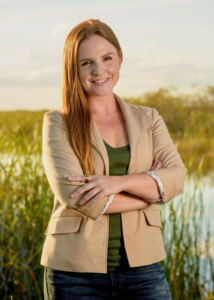By Alissa Jean Schafer
The Supreme Court’s decision to overturn the constitutional right to abortion came days into summer’s natural disaster season, which has already brought catastrophic flooding, intense thunderstorms, tornadoes, power outages and heatwaves. With natural disasters becoming more common, restricting access to abortion care promises to make these events more deadly than ever.
Even before the court reversed Roe v. Wade, access to health care after a natural disaster has been a challenge and research shows women are disproportionately affected. Negative impacts include lower levels of pre-natal care, increased sexual violence and shortened life expectancy.

State anti-abortion laws provide an added challenge for those seeking abortion care, forcing women to beat an arbitrary deadline or finance an out-of-state trip for the procedure. In Florida, thanks to a new law passed by the Republican Legislature and signed this year by Gov. Ron DeSantis, that deadline is 15 weeks. This deadline can present a challenging situation for those already feeling the financial burden of storm-related losses.
Plus, a woman may not realize she is pregnant until several weeks into a pregnancy, as any number of factors — including changes in diet, medication or even stress levels — can cause a menstrual cycle to change. It is not hard to imagine that while digging out after an extreme weather event, a woman will not realize she is pregnant until it is too late to access a safe and affordable abortion, creating an impossible choice for her or her family.
2020 and 2021 were the worst years on record for natural disasters, with 20 and 22 weather-related disasters respectively, according to data reported by Climate.gov. Even if 2022 doesn’t top the previous two years’ records for billion-dollar disasters, we are clearly trending in the wrong direction.
Its’s not just dollar losses, either. Climate.gov stated: “2021 was also unusually deadly, in that the 20 events of 2021 caused at least 688 direct or indirect fatalities — the most disaster-related fatalities for the contiguous U.S. since 2011 and more than double last year’s number of 262.” It’s not overly dramatic to think that reduced access to critical health care, including abortion, will cause the number of indirect fatalities to increase.
Solutions to the deadly mix of worsening climate impacts and restrictions on abortion should be considered basic human rights, rights currently under siege by politically powerful people. For the sake of myself, my daughter and all of humanity, I truly hope we can work toward a drastic course correction.
Lives will be lost because of the decisions made this summer. It’s just a question of how many and how long we will allow the preventable deaths to continue.
Alissa Jean Schafer is managing owner and director of Copper Stamp Strategy LLC, a communications and research manager for the Energy and Policy Institute, a national watchdog organization, and a Broward Soil & Water Conservation District Supervisor, Seat 4.



